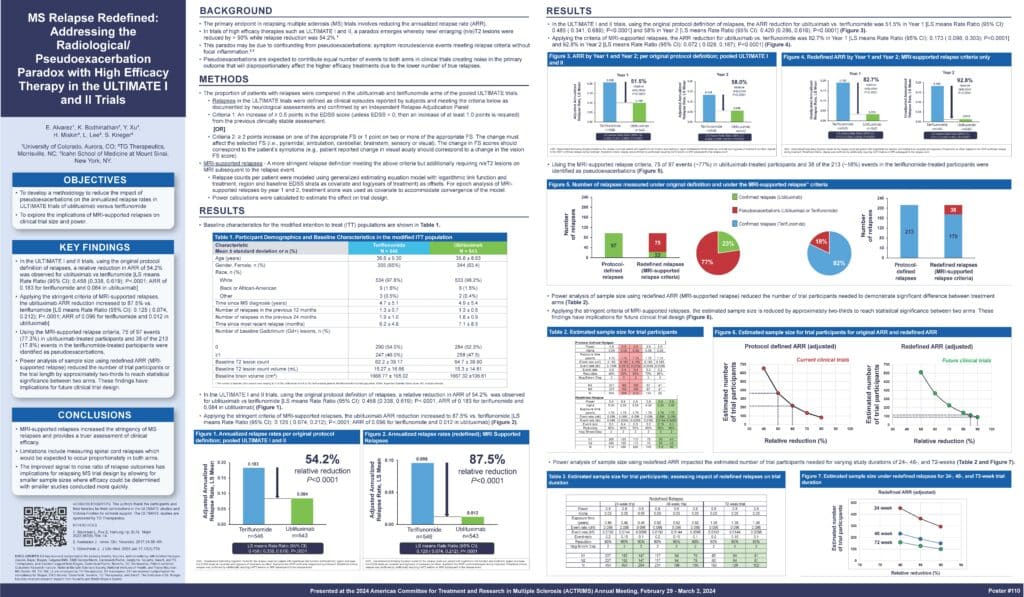By: Stephen Krieger, MD; Enrique Alvarez, MD, PhD

In this poster, Enrique Alvarez, MD, PhD., (from university of Colorado at Denver) and Stephen Krieger, MD, evaluated relapses from the clinical trial of ublituximab (Briumvi) vs teriflunomide (Aubagio). in the main trials, Briumvi reduced relapses around 50% more than Aubagio, but it reduced new enhancing MRI lesions by around 95%.
We hypothesized that the reduction in lesions reflects the “true efficacy” of the medication, and that the reason the reduction in clinical relapses wasn’t as large is because many events deemed relapses in the trial weren’t truly new inflammatory events.
Everyone with MS knows that there are good days and bad days. Days when there is fever or infection or sleep deprivation or stress. When all their MS symptoms feel worse. using the metaphor of my topographical model of MS, these are days when the tank of reserve is low. But not necessarily when a new lesion is forming causing a true relapse. We analyzed this trial to exclude “relapses” that weren’t accompanied by a new lesion, and to focus the analyses on relapse events that were associated with a new MRI lesion or lesions.
By looking at these “MRI-confirmed relapses” the efficacy of Briumvi at preventing relapse was 87%! This is much closer to what we think the true efficacy of B-cell depleting medications is, and is the first time to our knowledge that a clinical trial result has been analyzed this way.
We call it “redefining relapse” because these objective measurements of relapse could help clinical trials to be designed and completed faster and more efficiently.
——— WATCH this video to learn more —–
https://www.neurologylive.com/view/redefining-relapse-efficacy-measures-ms-treatments-stephen-krieger-enrique-alvarez
Information provided to MS Views and News by MS Neurologist Stephen Krieger MD, March 4, 2024
Stay informed with MS news and information - Sign-up here
For MS patients, caregivers or clinicians, Care to chat about MS? Join Our online COMMUNITY CHAT



